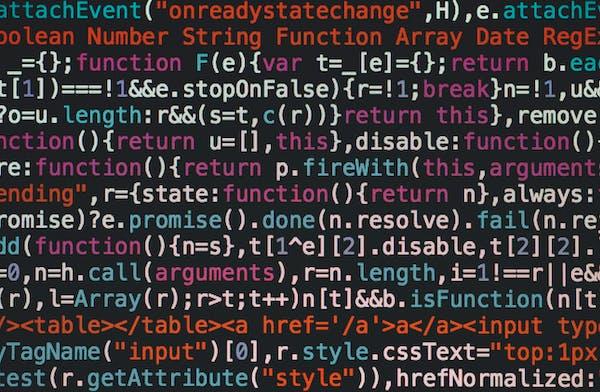In an increasingly digital world, technology has permeated every aspect of our lives, including how we manage our finances. The financial landscape has evolved significantly over the past few decades, thanks to the rapid advancements in technology. From the way we budget, invest, and make transactions to the very concept of money itself, technology has left an indelible mark on personal finance. In this article, we will explore ten distinct ways in which technology has impacted personal finance, revolutionizing the way we handle our money and reshaping the financial habits of individuals across the globe.
Online Banking and Mobile Apps

One of the most noticeable ways technology has transformed personal finance is through the advent of online banking and mobile apps. These innovations have made it possible for individuals to access and manage their bank accounts from the comfort of their homes or on the go. Long gone are the days of standing in interminable queues at brick-and-mortar banks. Nowadays, a few taps on a smartphone or clicks on a computer allow users to check balances, transfer funds, and pay bills. This convenience has not only saved time but also reduced the dependency on physical bank branches.
Digital Payments and Wallets
The rise of digital payment options and mobile wallets has significantly altered the way we conduct financial transactions. Services like PayPal, Apple Pay, Google Wallet, and numerous others have rendered cash transactions nearly obsolete. The convenience of sending and receiving money electronically, often accompanied by added security measures, has led to faster, more efficient, and safer transactions. Users no longer need to carry physical cash, further emphasizing the role of technology in modern financial management.
Investment Platforms and Robo-Advisors

Technology has democratized investing, making it accessible to individuals with varying levels of financial knowledge and resources. Online investment platforms and robo-advisors have emerged as powerful tools for investors. They allow users to invest in stocks, bonds, and other assets with reduced fees, automated portfolio management, and personalized investment strategies. This shift in the investment landscape has made it easier for ordinary people to grow their wealth and plan for their financial futures.
Financial Education and Resources
The internet has proven to be an invaluable resource for financial education. Countless blogs, podcasts, online courses, and forums provide individuals with access to a wealth of information and insights on personal finance, budgeting, investing, and retirement planning. This democratization of financial knowledge empowers people to take control of their financial futures, regardless of their background or prior experience.
Cryptocurrencies

The emergence and proliferation of cryptocurrencies, led by Bitcoin and Ethereum, have introduced a new dimension to personal finance. Cryptocurrencies are decentralized digital assets that operate on blockchain technology. While they come with inherent risks and volatility, they have garnered the attention of both mainstream and institutional investors. Cryptocurrencies have the potential to disrupt traditional financial systems and redefine how we perceive and manage wealth.
Budgeting and Expense Tracking Software
Personal finance software and apps have become invaluable tools for managing money efficiently. Applications such as Mint, YNAB (You Need A Budget), and Quicken offer users the capability to gain a comprehensive view of their financial health. These tools provide insights into spending habits, categorize expenses, and help individuals create and adhere to budget plans. By leveraging technology, users can better understand their financial behaviors and make informed decisions. Also, you can discover whether you have been paying for unnecessary things like junk insurance, and if that happened to you, just find a reliable Get My Refund platform to get your money back ASAP.
Artificial Intelligence (AI) and Machine Learning

AI and machine learning algorithms have found applications in various aspects of personal finance. Financial institutions use these technologies to analyze vast amounts of data, detect fraudulent activities, and offer personalized financial advice to their customers. By harnessing the power of AI, financial organizations can provide more accurate risk assessments and make informed predictions about market trends, assisting individuals in making smarter financial decisions.
Peer-to-Peer Lending and Crowdfunding
In recent years, the financial landscape has witnessed a transformative shift, propelled by the advent of technology, leading to the emergence of alternative lending and investment options like peer-to-peer lending and crowdfunding platforms. These innovative platforms serve as intermediaries, facilitating direct connections between borrowers and lenders or investors, effectively circumventing the conventional banking system. This disruption has significantly broadened the scope of financial opportunities for individuals, empowering them to secure loans or invest in projects and businesses that resonate with their specific interests and align with their long-term financial objectives. The decentralization of lending and investing through these platforms exemplifies a paradigm shift in the financial industry, fostering inclusivity and democratizing access to capital.
Automation of Savings

The landscape of personal finance has been profoundly impacted by technological advancements, and one notable manifestation of this influence is the automation of savings. The introduction of cutting-edge technologies, such as round-up programs and automated recurring transfers, has revolutionized the way individuals save money. These tools streamline the savings process by enabling users to automatically allocate funds towards their savings goals without the need for constant manual intervention. This not only simplifies the savings journey but also cultivates a culture of financial prudence and discipline.
Enhanced Security Measures
As financial transactions increasingly occur in digital spaces, security has become paramount. Technology has responded to this need by introducing advanced security measures such as encryption, biometric authentication (e.g., fingerprint and facial recognition), and multi-factor authentication (MFA). These measures ensure that financial transactions are conducted securely, protecting individuals from cyber threats, identity theft, and fraud. The continuous improvement of security technologies safeguards the integrity of personal finance in an interconnected world.
The impact of technology on personal finance is undeniable, extending beyond convenience and efficiency to reshape how individuals manage and interact with their money. As technology continues to evolve, individuals must stay informed and adapt to these changes to make the most of the opportunities and mitigate potential risks associated with the ever-changing landscape of personal finance. Embracing technology wisely can lead to better financial management, increased financial literacy, and ultimately, a more secure and prosperous financial future.

Comments are closed.